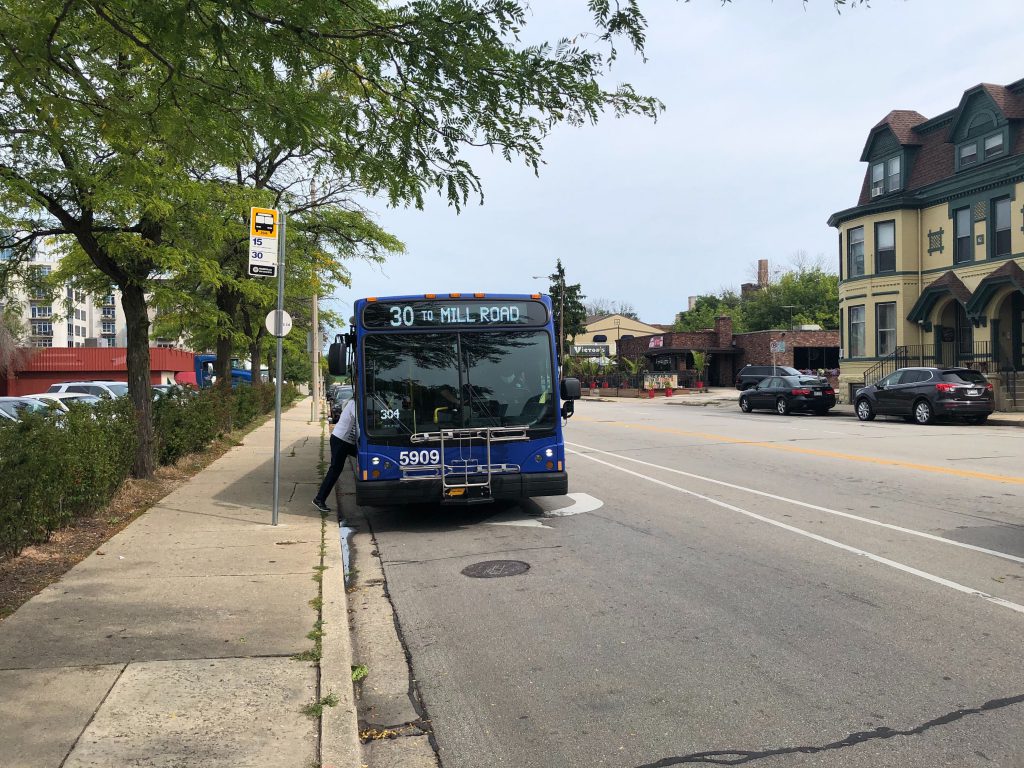MCTS Targets Bus Driver Shortage
With bonuses, pay bumps, job fairs and better marketing, but still short of workers.
In June, the Milwaukee County Transit System’s long struggle to retain bus operators came to a head when the transit agency announced it would not be providing its Summerfest bus service this year, in large part because of an operator shortage.
The transit system announced that a shortage of drivers, as well as buses, coupled with the music festival being postponed to the fall when transit demand is surging, made it unfeasible to run the special service this year.
Less than one month later, the transit system would see its operator numbers rise to 725. In a recent report to the county board, the transit system said as of August 1st their operator count had gone down to 713.
MCTS noted that it hired 160 new operators between July 2020 and July 2021, and it has more than 20 new operators that began training at the end of August.
In a report to the county board laying out the efforts being made to improve operator retention, the transit system said it had instituted a number of bonuses and pay bumps, increased efforts to market the positions and made new efforts to improve communication between MCTS management and the rank and file workers.
MCTS is placing most of the blame for the driver shortage on the COVID-19 pandemic, as transit agencies around the country, as well as other industries, are grappling with retaining and hiring employees.
But MCTS has had fluctuating levels of operators for years. As far back as 2014 the transit system saw its average operator count for the year drop as low as 715. A union steward for the Amalgamated Transit Union 998, Donnell Shorter, offered this view of bus driving in Milwaukee: “At some point it became a job and not a career.”
The transit system has offered a $200 a week hardship bonus for drivers that worked from March 15, 2020 through June 26, 2020; increased training pay from $15 an hour to $18 an hour beginning this past month; instituted a new $1,000 signing bonus in May; and a $1,000 referral bonus for employees making referrals for bus operators in July.
The agency has also tripled its advertising budget for job postings, held virtual job fairs with nearly 200 total attendees and hired a recruiter to expedite background checks and credentialing of applications. It’s also making upgrades to employee break rooms, restrooms and water stations to improve the workspace for employees.
The newly overhauled network of bus routes, called MCTS Next, includes more “straight runs” that limit the number of “split shifts” the operators work. These split shifts have the drivers working for a stretch in the morning, then having a long break, then resuming work.
While split shifts do provide a long break, they also functionally lengthen the workday and limit what workers can do with their time off, knowing they have to return to finish their shift.
In April, MCTS convened two workgroups focused on employee engagement and employee retention. Both groups are using an employee survey conducted in November 2020 to guide their work. Neither workgroups have bus drivers sitting on them.
Shorter told Urban Milwaukee in July that communication was an area that needed improvement, with operators not feeling like management listens to their concerns.
The management workgroups are meeting with operators and ATU 998 representatives, Sliker said. “As a result of this new process, we’ve already identified the need to improve schedules for operators in a way that benefits their well being and encourages better attendance and retention.”
MKE County
-
Fellow Judge Testifies in Dugan Case
 Dec 16th, 2025 by Graham Kilmer
Dec 16th, 2025 by Graham Kilmer
-
Key Questions in Dugan Trial Take Shape on First Day
 Dec 15th, 2025 by Graham Kilmer
Dec 15th, 2025 by Graham Kilmer
-
FTA Tells Milwaukee to Crack Down on Fare Evasion — Even Where Fares Don’t Exist
 Dec 12th, 2025 by Graham Kilmer
Dec 12th, 2025 by Graham Kilmer
Transportation
-
Congestion Pricing Cuts Air Pollution in New York City
 Dec 14th, 2025 by Jeff Wood
Dec 14th, 2025 by Jeff Wood
-
FTA Tells Milwaukee to Crack Down on Fare Evasion — Even Where Fares Don’t Exist
 Dec 12th, 2025 by Graham Kilmer
Dec 12th, 2025 by Graham Kilmer
-
Will GOGO’s Bus Service Ever Get Going?
 Dec 9th, 2025 by Jeramey Jannene
Dec 9th, 2025 by Jeramey Jannene





















